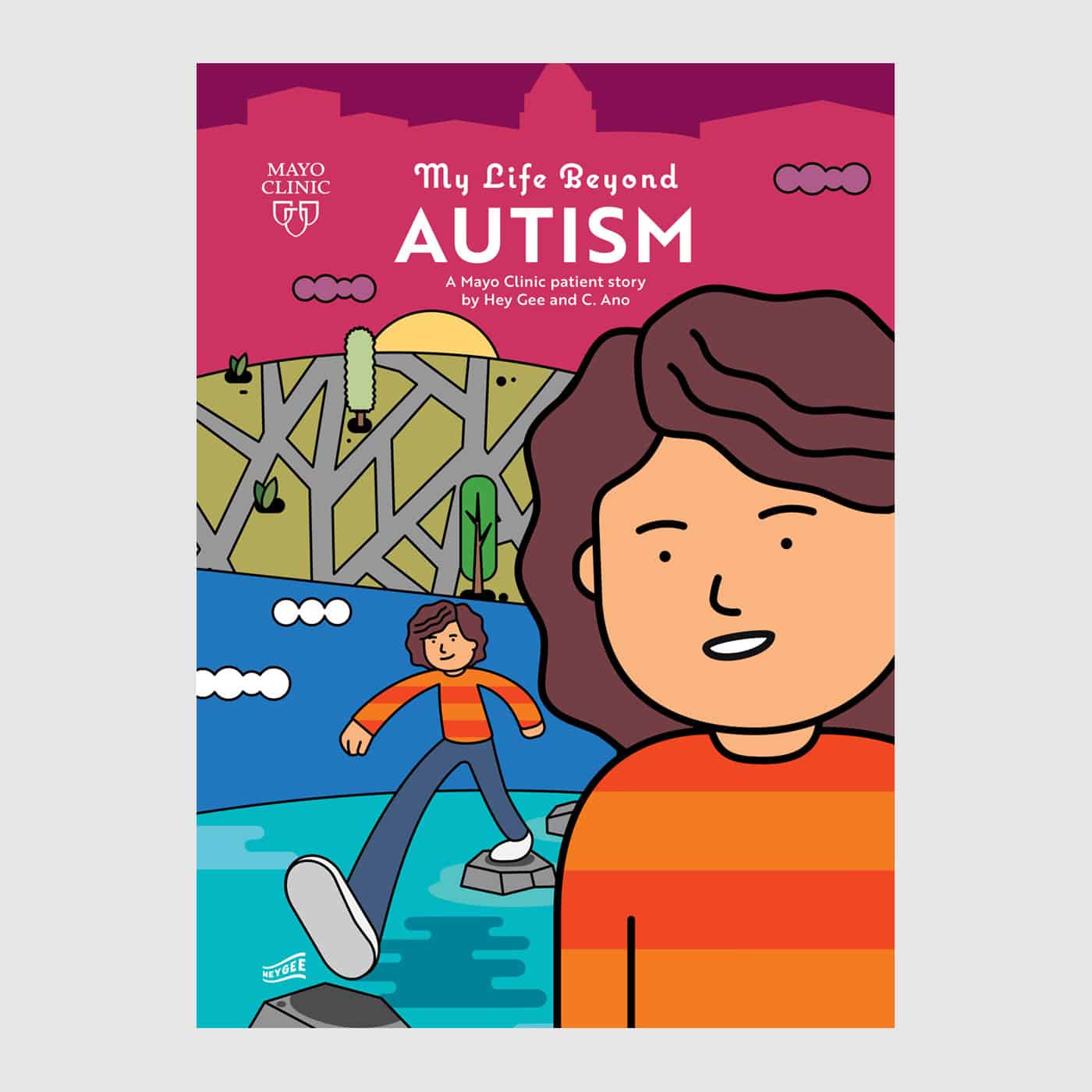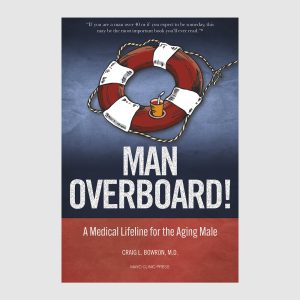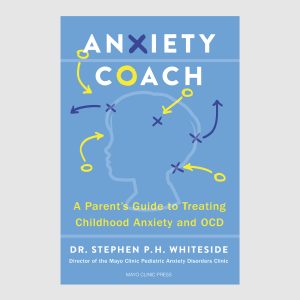Around 20% of adults between ages 40 and 79 are taking five or more prescription drugs—and for older adults, the numbers are likely even higher. Our relationship to medication can change over the years: our bodies take longer to clear them from our system, and in some cases, side affects from medications lead to even more prescriptions!
On this episode of Aging Forward, we talk with clinical pharmacist Tim Habermann about supplements, high costs of medication, and proactive approaches to medication management.
Find us online at Mayo Clinic Press for more health and wellness articles, podcasts and books. Do you have feedback, questions or topic suggestions? Email us at mcppodcasts@mayo.edu.
Read the transcript:
Dr. Christina Chen: This is “Aging Forward,” a podcast from Mayo Clinic about geriatric medicine and the science of healthy aging. Each episode, we explore new ways to take care of ourselves, our loved ones, and our community so we can all live longer, fuller lives. I’m Dr. Christina Chen, a geriatrician and internist at Mayo Clinic in Rochester, Minnesota.
This episode, we’re talking about medication management for older adults.
Today, we invite Tim Habermann, who is a clinical pharmacist at Mayo and a partner in the medication therapy management program. He provides patient-centered comprehensive medication management through a shared decision making and motivational interviewing process to optimize one’s drug delivery, therapy, and health outcomes. Thank you so much, Tim, for being here, and welcome to the podcast.
Dr. Habermann: Thank you so much for having me.
Dr. Chen: It’s great to have a pharmacist on the show because we really don’t explore these topics very much. It’s great to have your perspective.
Dr. Habermann: Thank you. This will be fun.
Dr. Chen: Tim, we’ll be talking about drugs, medication management in older adults, and specifically pearls on how to be proactive with safe medication use, including concepts on polypharmacy, deprescribing, and partnering with your healthcare team. Most of you listening probably don’t know Tim. He is a very calm, collected, humble individual, and probably one of the smartest people I know.
In fact, I think all pharmacists are just brilliant. I mean they know everything about everything when it comes to medications and the action mechanism interactions, the clearance and half life, and then having to apply that to clinical practice as well as individualize it to each patient, trying to keep up with all the industry and the new developments… I don’t know how you do it, but we appreciate your expertise and thanks for being such a great resource.
Dr. Habermann: Thank you so much. That was very kind.
Dr. Chen: Tim, the world of pharmaceuticals makes me dizzy because I feel like it changes so much. Every week I feel like I’m seeing something new and different. If I’m struggling with this as a provider, I can’t imagine how our patients are handling it as well. If you can just give us a general overview of how the world of pharmaceuticals has changed over the past two decades and how has that impacted our older adults and their medication use?
Dr. Habermann: When I think back to when I started pharmacy school in the late 90s to what we have today, there’s just so many more drugs and that’s spurred by advances in technology, biotechnology, and those have been good things. But they’ve also driven this thing that we have called guideline directed medical therapy. We have all of these guidelines for so many disease states and a lot of the first line things are medication. We have more medication use. I would say the other thing that I think about is that consumer advertising seems to have really ramped up over the past 10, 15 years.
If you look at the trends pharmaceutical companies are spending billions of dollars on this and we have social media and there’s just so much out there, and really the net effect of that is our older adults are taking more medications, they have more access to them. Sometimes that can be hard to deal with when you’re, you’re taking so many medications.
Dr. Chen: Especially if there’s not a lot of consistent guidance through that. I’ve had people come in with numerous medications and it accumulates over years. Right. For decades and then we’re having to deal with how we manage that now. How does aging affect the way that our bodies metabolize medications?
Dr. Habermann: In general, medications are cleared from our body in two ways. One is through the kidneys and the other is through the liver. As we age our kidneys filter less volume per time. When you’re younger, our kidney units are filtering around 90 milliliters per minute. As we age, maybe we end up at like 30 milliliters per minute. That affects how long medications stay in our body.
Also, the liver is a big part of metabolizing medication, and as we age, we see the liver gets smaller, has less blood flow, and it affects the enzymes in the liver that metabolize the medications, and so the net effect of all of that is really a problem. Increased half life. That means the medications stay around longer in our body. It also means that we get higher levels of the medications than maybe we had previously.
Dr. Chen: Polypharmacy becomes an issue with every year that goes by. I remember seeing a woman who had the most medications I’ve ever encountered, and a lot of my patients already are on quite a bit. I do my best to try to reduce all that, but the most I’ve ever seen a person take was 67 medicines, including supplements. She was taking it every four hours. That was her whole day, revolving around her medications. How does that situation happen and what has been your observation when people are on this many medications, maybe not 67, but what is the net effect of polypharmacy on lifestyle and function?
Dr. Habermann: One interesting thing is there’s really no standard definition of polypharmacy. I think the most common definition is five or more medications and that’s really not a very specific number. We could have patients on 10 medications and they’re all very appropriate and we wouldn’t be worried and we can have someone maybe on two medications and maybe they’re high risk.
I think things that drive polypharmacy would be what I mentioned before. Medications if you have multi-comorbidities. Let’s say, for instance, you have diabetes, you have hypertension, you have heart failure, all of those different disease states will recommend medications to treat them.
That starts to build up over time. Another factor that goes into it is this expectation that medications treat problems. Patients come and they see their providers and they expect to get medication out of that, that starts to snowball over time.
A third thing I think is, is just access, like I talked about. You can order so many things on the internet now. You can go into a pharmacy and there’s things that are going over the counter all the time. Just access and patients just seeing different advertisements for medications increase use as well.
Dr. Chen: The regulation becomes more lax, so to speak.
Dr. Habermann: Right. Then they’re starting things and they’re not necessarily asking about it or telling us they read about this thing on Facebook and their friend is on this and it’s really helping them. They’re going to try it.
Dr. Chen: Right. When you meet your patients and you go through this medication management program. Walk us through your strategy. What do you do to help them either deprescribe or help them find the most optimal plan? What’s your process through that?
Dr. Habermann: When anybody meets with me they’re asked to bring in all their medications and their pill organizer. That’s the first thing that I do. We get all those medications out and we do something called a medication reconciliation, which is making sure that what they’re actually taking, how they’re actually taking it, and see if it matches what we think they’re doing. We have an electronic medical record that has their medication list.
But sometimes they’re doing something differently. That’s the first thing to figure out. Then through that process, I’m evaluating each medication through four kinds of four things. Is the medication indicated? Is it efficacious? Is it doing what it should be doing? Is it safe, and is it convenient?
Safe would be, I’m looking at drug interactions, I’m looking at the dosing, making sure that the dosing is appropriate based on their kidney function, their liver function. Convenience, I ask them, “Are you using an organizer? How many times a day are you taking medications? Are you having any issues? Do you forget to take medications?”— an open-ended question. “How many times a week would you say you miss a dose of your medications?” Then give them some tools if they’re having trouble. Based on what they’re telling me. It’s asking them, “What are you struggling with, if anything?” That’s the process, and then coming up with a plan and following up on that.
Dr. Chen: Right. Sounds like a lot of effort, a lot of work and time that’s spent—almost hours of your day. Time and effort and the patients too, to not just go through that assessment, but the follow-up process. It seems like a multi-step effort.
Dr. Habermann: Absolutely. Sometimes we can’t get through everything in a visit. I don’t think I’ve seen 66 or 67, like you said, but I have a patient that has a rolling suitcase that they walk in with and they open it up and it’s just full. It takes at least an hour just to get through all those to figure out what they’re doing. Then talking about each one and making sure they understand why they’re taking it can sometimes take multiple visits for sure.
Dr. Chen: There’s this term that I’ve been keeping in mind that may lead to this pattern of over prescription polypharmacy is the term of prescription cascade. I’m not sure if everyone really understands what that means. If you could maybe give an overview of what that is and how this can be alerted to this problem.
Dr. Habermann: The prescription cascade is when a side effect of a medication is considered like a new medical condition and then an additional medication is added to treat that when, in fact, what should have been addressed is the medication that’s causing the side effect. That obviously leads to more medication and to polypharmacy. There’s a famous quote in geriatrics by a Dr. Gerwitz, he said that any symptom in an older adult should be considered a drug side effect until proven otherwise.
Dr. Chen: Right.
Dr. Habermann: Obviously that’s not always the case. Some symptoms are not due to medication, but it should really be on the list of things we’re thinking about when we’re assessing a patient. Admittedly this can be challenging to tease that out. You only have a certain amount of time. You need to take a history and try to look back and when things were started. It is challenging, but it’s something that should be on the list of things to think about.
Dr. Chen: I love that pearl. I think that’s something we should all be mindful of, especially for those who are going through training right now and med school and residency, just to have that always on the top of your differential as you’re working through new issues, new symptoms, and also, if anything, to remind us to take a double take, triple take at the medication list and see if any of those may be contributing. A classic example is probably someone’s put on a water pill and they have to urinate too much and then they’re put on something to slow down the excess of bladder contractility. That’s a very classic example.
It’s just the prescription cascade, and I think having the knowledge and understanding that that exists and it’s very common is super helpful. With these side effects that keep building up, or the side effects that are more documented, I feel like the beer list just keeps getting longer. The list of potentially inappropriate medications for older adults. Out of that list, I know there’s quite a bit of categories, but what would you consider to be specific medication categories that older adults should be more cautious about taking?
Dr. Habermann: When I’m evaluating a medication list, one of the first things I look for is what we call anticholinergic medications. Anticholinergic medications will affect the parasympathetic nervous system and they can cause a cascade of problems. It can increase risk of falls, dry mouth, dry eyes, constipation, decreased cognition, urinary retention. We have medications that we’re using therapeutically for that effect.
For instance, overactive bladder, but we also have a lot of medications where we’re not using it for that effect, but they have that side effect. That’s something that, especially if you’re on more than one of these medications, they can really start to build. There’s actually some medications that you can buy over the counter that sometimes patients will get on their own, such as antihistamines like Benadryl, and that’s in sleep aids, and that has pretty strong anticholinergic side effects.
That’s one category that I think about. Second one would be NSAIDs, nonsteroidal anti-inflammatory drugs, which is another thing you can get over the counter. This is not to say you can’t use these medications, but using them chronically can really cause some increased risk. They can cause GI bleeding and can also decrease kidney function.
The other one I think about is our diabetic patients who are on agents that can cause low blood sugars. Some of the newer agents we have don’t cause as much low blood sugar, but some of the older agents that we’re using, which unfortunately are the ones that are affordable for many, cause a low blood sugar reaction. We need to be careful with that.
Dr. Chen: Tim, you mentioned that there are so many over the counter items people can just freely buy, including supplements and NSAIDs and drugs that are seemingly safe, but in excess dose is probably not. How much would you say people are using supplements nowadays? When you mentioned your patient coming in with that bag full of meds. How do you approach supplement use in addition to prescription medication use?
Dr. Habermann: I would say the patients that are on 30 or 40 medications, a good handful of those are supplements. It seems like more often than not, I’m seeing patients on supplements versus patients who aren’t on supplements. A couple of things that I’ve tried to cover would be, you can’t assume that supplements are benign.
They do have drug interactions. They do have adverse effects. The other thing with supplements is they’re not regulated by the FDA, so they don’t have to prove safety and efficacy. One example I wanted to share was there was a recent study, I think within the last year, published in JAMA, and these researchers gathered 25 different melatonin gummy supplements, and they tested them for potency, and 22 of the 25 supplements were mislabeled. Meaning that they didn’t have the amount of melatonin that was on the label. Some didn’t have any in it at all, and someone had like 400 percent more than what it said.
Dr. Chen: Oh my goodness! That’s really scary.
Dr. Habermann: There are some supplement makers that use an outside lab to verify what they have in it. I typically recommend looking for one that has a USP that’s printed on the bottle and then they use that as an outside lab to say that what we say is actually in it.
Dr. Chen: I do recall a website called natural medicines database, I believe, where you can input the name of the supplement, the manufacturer, and then it can pull up the quality of investigation behind that.
Also a drug interaction ability as well to see, “Will this cause problems with your current medication use?”
Dr. Habermann: That’s really the first thing that I go to is that natural medicines database. You have to have a subscription to use it. We have it available to us at Mayo Clinic, but I don’t think the average person can just go there and use it.
Dr. Chen: I remember learning from one of the integrative medicine providers that I worked with that there are certain G supplements that can cause increased risk of bleeding. Ginkgo, garlic, and I believe ginger and access like the purified and concentrated forms. If you’re taking other things like Plavix and Coumadin and aspirin, just be thoughtful about the G supplements that can increase risk of bleeding.
Dr. Habermann: It’s absolutely right.
Dr. Chen: A little pearl there. I know that prescribing is a separate topic and we can certainly have you come back for part two of that. But that’s something that we want our trainees to be very familiar with and become very comfortable doing. Can you give us a high level overview of what deprescribing means and what has been in literature about the impact of that and how we as providers can do that more effectively?
Dr. Habermann: Deprescribing is the systematic approach to either reducing or getting rid of medications. It needs to be done within the framework of the patient’s goals. It needs to be a shared decision based on the patient’s preferences, maybe their lifespan, their goals of care.
If you look at the literature, it has been a little bit mixed in terms of the benefit, there have been some studies that haven’t shown benefit, but then there’s others that have the ones that have shown benefit and have shown reduced risk of falls, reduced risk of hospitalizations, an increase in adherence to taking their medications because they don’t have so many, and then a decrease in cost of medications as well.
Dr. Chen: That’s good to know because I feel like these are little tasks that we can even implement into our day to day practice just to be thoughtful of if we recognize one or two medicines that may not be needed anymore, or is not as helpful, maybe that can make a big impact on their fall risk and future delirium risk or some negative outcome we may not be able to predict now, but may have impact in the future.
Dr. Habermann: One pearl I’ve recently read about deprescribing is that it’s more of a proactive approach rather than a reactive approach. We don’t take things away when someone’s having a problem where we’re looking to the future and thinking you’re on this medication. We could have a future problem. You’re doing okay now, but do we really need this?
Dr. Chen: I like that. I never thought of it that way. Even when someone is feeling well. In fact, someone feeling well could be a prompt to look for an opportunity to deprescribe rather than if they’re having a reaction or a symptom or a problem to do it then. I like that. That’s a really good pearl. I’m going to use that more often now.
Over the years I have also been struggling with providing the right medications for people due to issues like cost and adherence, due to increased cost because I think we’ve been saying all these bad things about over medication use, which is true, but there are instances where that’s true.
There are treatments that are super helpful, especially in the care of diabetes and cardiac care and things like that, but I find that these new treatment remedies, especially with these guideline focused remedies, are much harder to do because of cost, which affects adherence. Now, how do you approach that and are there assistance programs that we could be looking into for resources?
Dr. Habermann: Cost is a huge barrier. Three to four messages a day from providers who are sending me patient messages because they can’t afford their medications. Right. It’s so common. Especially our older adults who are on Medicare Part D. That brings some challenges because the cost of the medication changes throughout the year based on where they are in their plan.
That’s true. The beginning of the year we’re in the deductible phase, which for 2024 is 545. Then, once you get through that, then you’re in the coverage phase and then you go into the donut hole and then the catastrophic phase. It’s hard to budget not knowing when I go to the pharmacy next month, it might be 47 or it might be 2:30 and you get the message that I can’t afford this.
The other thing that makes it challenging is that patients who are on commercial insurance and they’re on an expensive medication, a lot of manufacturers have a savings card that they can apply for, print out, and give to the pharmacy. It can knock some of the price off, but patients on Medicare aren’t allowed to use those.
Dr. Chen: You mean like GoodRx and others like that?
Dr. Habermann: GoodRx is a little bit different.
Dr. Chen: Yeah.
Dr. Habermann: GoodRx is good for medications that are generic. In terms of medications that aren’t generic and are only brand names, yeah. GoodRx doesn’t help that much. Okay, that’s good to know. There are what we call manufacturer patient assistance programs that you can apply for if you meet income eligibility.
They can send you the medication for free, to your home. I’ve helped people do that quite a bit, actually. And someone who’s just living off their social security every month, in a lot of cases will meet those income requirements.
Dr. Habermann: It’s always good to check out. You can apply. They can always say no, but I think it’s a good thing to check out if you think you’re in that income category.
Dr. Chen: No, this is really helpful. I’m learning a lot. I think maybe it would be helpful to include some links at the bottom of our podcast episode just so our listeners and providers have a place to go to for that resource and we can provide that for you at the end of our talk today.
How can we as primary care providers identify opportunities to optimize medication management and also effectively partner with our pharmacy partners? I think as a geriatrician, I have a particular passion for making sure my patients are safely utilizing their meds, but as you have mentioned today, very eloquently, there’s so much to consider, so much complexity and layers to this process. Sometimes it’s just hard to do that by yourself. What are some recommendations you have for that?
Dr. Habermann: I think listening to your patients and keying in on things they’re saying, such as, “I don’t know why I’m taking my medications, I’m having trouble affording my medications, I don’t really know how to organize them.
I don’t know if I can take them together or if I’m taking the right things together.” It can be difficult to cover in a visit when you’re assessing other things. If they meet with me, I have an hour to answer all those medication questions. That’s what we’re there for. I think we’re fortunate at Mayo [Clinic] in Rochester, that all of our primary care clinics have an embedded pharmacist. Help with this. You can put in a consult and we work off a calendar and meet with patients one on one and can also do virtual visit follow up.
Just being aware of patients who might be struggling with their medications. There are resources that can help. I know other health systems also have pharmacists, MTM pharmacists, and if they don’t, community pharmacists are also a good resource. I’ve worked in a community pharmacy and I know that there’s time constraints there, but they can also be very helpful.
Dr. Chen: That’s good to know. I’ve never actually called up our local friendly neighborhood Walmart pharmacist to ask for help because I just see them siloed in their own practice, but I’m glad to hear they’d be willing to answer questions and help too. I just really like the pearls. You never know unless you ask and come to think of it half the time that I ask people, “What do you think of your medications?” or “Are you willing to get rid of some of this most of the time, more than half the time?” They say, “Yes, I do want to do something about this.” Never underestimate the power of just asking.
This podcast is Aging Forward and our goal is to help inspire people to take ownership of their health and wellness. As we speak with experts like you, we want to bring in some of the positive and encouraging aspects and perspectives of that. Can you share any cases or stories where a thoughtful medication review was able to either reverse a problem or potentially prevent a negative outcome?
Dr. Habermann: A patient was referred to me after a three month history of nausea. She was on antiemetics and was losing weight. She had seen her primary care provider a number of times, getting to the bottom of it. They couldn’t figure out what’s going on. She was referred to a GI who also couldn’t figure out what was going on, but the GI specialist noted that she was on a lot of medications and maybe she should visit with the MTM pharmacist. I met with her.
A couple of the challenges were that she was on a number of medications that could potentially cause nausea. Trying to figure out which one to target was a challenge. The other challenge was that she’d been on most of the medications for some time. Typically when we’re trying to figure this out, we look for the first thing or the last thing that was started.
There wasn’t really anything that clued us in in this case, but one thing I did notice was one of her medications was dosed like three times higher than what was recommended for a kidney function. That was really the first thing we targeted. I reduced that over a couple of weeks and then I saw her back in a month and her symptoms of nausea were totally gone. She had gained a little weight and was very happy.
Dr. Chen: It was just overdosing a medicine that led to a side effect of the medication. I just love that you enjoy so much of what you do and that your passion really shows through. If you’ve been able to help a lot of people feel better without having to go to the doctor. There are other strategies that can help older adults stay organized with their medication use, especially if they’re on so many, outside of pillbox organization.
Dr. Chen: We have a lot of caregivers listening as well, who support their older adult loved ones. Any tips on how to help them manage things a little bit better and more efficiently?
Dr. Habermann: I think when we’re assessing medication use and we’re maybe suggesting that things aren’t going that well, you’re missing doses, you’re forgetting to take your medications. Sometimes they feel like you’re asking them to maybe lose some independence. They want to keep a handle on that, but maybe need some help.
As caregivers, provide a safety net by checking in and making sure they’re able to get their refills. Are there any cost issues where sometimes they’re rationing these medications? They’re spending $200 a month, but if I take half of it or I take it every other day or something, then that stretches it out—looking in the pillbox and making sure that there aren’t doses remaining.
Checking in: There are pharmacies that provide bubble packing. There are a number of places in Rochester that provide bubble packing. They will set up the medications for them and then deliver them in some cadence every day. Two weeks or a month.
Dr. Chen: I find those bubble packs hard to open.
Dr. Habermann: For someone with arthritis, they have to really have good dexterity to open that. Maybe a bigger bubble pack is something we can suggest. The other point I wanted to touch on was transitions of care. That can actually be a really dangerous time. Transitions of care means they’re changing from one healthcare environment to another. Say they were hospitalized and now they’re going home, or they’re in a skilled nursing home for a time and now they’re coming home. There may have been a number of medication changes made.
There may have been new medications added. I think it’s important then that someone is watching to make sure that that’s implemented and that the old medications are maybe taken out of the pill box because studies have shown that a lot of the issues with transitions of care revolve around medications. Just being aware that that could be a potential issue as a caregiver.
Dr. Chen: Right. I think that’s actually a big problem with care transitions where people leave the hospital with six or seven new meds and then assume that it’s supposed to be a long term med. I know there’s a lot of programs to try to make that transition as safe as possible where we have the providers do the medication review, but I think empowering caregivers to really pay attention to those opportunities is critical as well.
Are there ways to proactively utilize our medications in a way that can improve our health span? That’s a loaded question there, but I’m just trying to think of a positive spin to this. I know there’s been a lot of development over the years that’s obviously saved lives and there’s good data and research behind a lot of medications that will help us in many ways. Are there ways to creatively use that to improve our health span?
Dr. Habermann: Things I think about would be when we’re trying to remain as healthy as long as we can, we call them modifiable risk factors. Sometimes, despite our best efforts, we can’t change some of these risk factors because of genetics.
We have medications that can help reduce the risk. Using those medications to prevent something happening down the road I think is important. An example would be like a statin medication. If your LDL cholesterol is over 190. We know that that is an inherent risk for heart attack and stroke. Using medication proactively to avoid that can avoid problems down the road.
Another one I would think about is medications to prevent fracture. Someone who has weakened bones. Taking medication to strengthen your bones and reduce fracture risk and avoid problems down the road.
Other medications like smoking cessation, allowing you to quit smoking to make you healthier overall. Even medications to prevent high blood pressure.
We know that high blood pressure over a long period of time increases risk for heart attack and stroke. It’s very hard on your kidneys. Proactive medication use to lower that could increase your health span.
Dr. Chen: I really like that strategy and something that you can apply to your process of deprescribing too is look at the ones that will be the most helpful and perhaps keeping those available to either prevent worsening or development of future comorbidities, preserving function, or at least preventing something catastrophic like a fracture.
Then, the last bit is just, symptom wise, if someone’s in a lot of pain, for example, sometimes thoughtful, safe use of pain medicines can be beneficial. Thank you for that. Last bit here, Tim, is we always like to get to know the expert who can give us maybe some healthy aging advice from your perspectives.
As someone who regularly sees older adults, what are some observations from your perspective on what it means to age well?
Dr. Habermann: A couple of things that I’ve seen as a theme would be to continue to do what you love. Aging can create some challenges sometimes, and I think of an example. I have a patient who I call at least once a month, mostly about her diabetes, but she has a lot of other kinds of complicated issues.
She loves to travel. I mean, it’s her passion. Even though she has all of these medical conditions, she’s on some complicated medications, she advocates for herself and she tries to find a way to not let that stop her. She’ll say, “Tim, I’m going here. I need your help with this. What can you do?” That’s just so inspiring.
The other thing that I see is patients who remain active, and so we have like this center in Rochester called “125 Live” and then there’s other gyms around so remaining active, but part of that is that they tell me that one of their favorite things about that is the social aspect.
We know that loneliness and isolation is bad for our health. Absolutely. Combining those two things I think is a really neat idea.
Dr. Chen: That’s so kind of you to call your patient every month and check in with her and make sure that she’s doing well and giving her some of your guidance about how you’re still supporting her.
I love that. Just doing what you love. What do you love to do? What’s your passion that you could do now? Not just now, but years from now?
Dr. Habermann: During the pandemic, I discovered this health platform—and I have an exercise bike and I have a treadmill—and I embraced exercising for 2024. My New Year’s resolution is to work on my core, and it’s more strength training, but I do really enjoy exercising. It just makes me feel better. Just feel great after exercise, even though it is hard to actually do sometimes. The alarm goes off in the morning and you’re like, “ I don’t want to do this.” But after I do it I’m just so glad.
Dr. Chen: Well, thank you so much, Tim. We’ve really enjoyed this chat and thank you so much for sharing your expertise, not just in the pharmacy world, but how you live well, because I think throughout this podcast I’ve been taking notes and just preparing a collection of wisdom. A lot of it has similar themes of staying active, doing what you love, enjoying life, staying connected and socially embedded with our community. I think you’ve really added to that nicely.
Dr. Habermann: Thank you so much.
Dr. Chen: That’s all for this episode — hopefully you’re feeling a little more informed, inspired, and empowered. If you have a topic suggestion for a future episode, you can leave us a voicemail at 507-538-6272. We might even feature your voice on the show!
For more “Aging Forward” episodes and resources, head to mayoclinic.org/agingforward. Thanks for listening, and until next time, stay curious and stay active.

Relevant reading
My Life Beyond Autism
Tracy likes to draw, make movies and play, just like other kids. She also has autism spectrum disorder. This means she processes many everyday situations differently, such as making friends. Over time, she’s learned tricks for communicating and coping when things are hard for her. Follow along as Tracy gives…


















